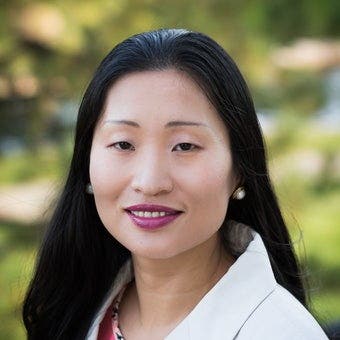Gen. Keane warns of China's 'significant' infiltration of US technology, intelligence
Fox News senior strategic analyst reacts to the trial of a Harvard University professor charged with hiding his ties to a Chinese-run recruitment program.
Dr. Charles Lieber, chair of the Department of Chemistry and Chemical Biology at Harvard University, was recently convicted on multiple counts, including lying about receiving payments from the Chinese government’s "A Thousand Talents Project." His conviction should serve as a wake-up call to U.S. scientists, universities and research institutes.
Lieber specializes in nanoscience, which studies tiny things. Nanotechnology is the application of nanoscience and can revolutionize a diverse range of fields, from health care to manufacturing. Lieber’s work was credited with helping develop "bio-nanoelectronic sensors capable of detecting diseases down to the level of a single infectious virus particle." Lieber won numerous awards, and he and his collaborators own more than 35 patents.

Charles Lieber is released from John Joseph Moakley U.S. Courthouse in Boston on Jan. 30, 2020. (Jonathan Wiggs/The Boston Globe via Getty Images)
As one of the nation's top scientists, Lieber received more than $15 million in grants from the National Institute of Health (NIH) and the Department of Defense (DOD). Part of these grants’ requirements is the disclosure of significant conflicts of interest, including financial support from foreign entities. Yet Lieber failed to disclose his position as "Strategic Scientist at Wuhan University of Technology (WUT) in China" and his participation in China's "A Thousand Talents Project" (TTP) from 2012 to 2017.
WALL STREET AND SILICON VALLEY MUST STOP BANKROLLING COMMUNIST CHINA
The Chinese government launched TTP in 2008 to "attract, recruit and cultivate high-level scientific talent in furtherance of China’s scientific development, economic prosperity, and national security." TTP is under the direct management of the Chinese Communist Party (CCP). The program usually targets experts and leading researchers who work in strategically important fields, such as artificial intelligence (AI), regardless of nationality or ethnicity. TTP enables the CCP to exploit the Western democracies’ openness and academic freedom to get hold of leading technology and research development from abroad.
Lieber’s case is a typical example of how TTP works. The court document shows that WUT paid Lieber a $50,000 monthly salary, an estimated $150,000 in annual living expenses, and more than $1.5 million to set up a research lab in China. In return, Lieber was required to work for WUT at least nine months a year. His responsibilities included "declaring international cooperation projects, cultivating young teachers and Ph.D. students, organizing international conference[s], applying for patents and publishing articles in the name of" WUT.
It is not illegal to accept funding or even be on a foreign university’s payroll. However, Lieber is required by law to disclose these financial transactions when working on projects sponsored by NIH and DOD. Yet, Lieber not only failed to disclose his relationship with WUT and TTP voluntarily, but he also repeatedly denied such relationships existed when questioned by NIH and DOD multiple times.
Lieber wasn’t the only TTP recruit who hid his compensation and engagement in China. Many TTP participants do not disclose either their involvement with the TTP or any financial rewards they receive. For example, officials at the Texas A&M University System found that more than 100 faculty at its schools were involved with TTP, but only five had disclosed their participation.
Much technology and research the Chinese institutes are going after often have both civilian and military applications.
The way the TTP has been implemented raises serious concerns. First, during the TTP application process, some potential recruits have to submit details of their research to agencies directly managed by the CCP for approval. It is also typical for Chinese institutions to require TTP scholars to sign legally binding contracts containing provisions that the U.S. authorities consider violating U.S. "standards of research integrity." They also "place TTP members in compromising legal and ethical positions, and undermine fundamental U.S. scientific norms of transparency, reciprocity, and integrity."
The second concern is that much technology and research the Chinese institutes are going after often have both civilian and military applications. U.S. authorities are rightfully concerned that even an innocent technology transfer to China by the TTP recruits could have national security implications. No wonder some in the U.S. refer to TTP as "A Thousand Traitors Program."
U.S. authorities had been slow to realize the threat of TTP. Under the Trump administration, the FBI and other U.S. government agencies finally began to increase scrutiny of federal grant recipients about their ties with China. The U.S. Department of Justice opened 24 cases against U.S.-based scientists, out of which, the Wall Street Journal reported "nine defendants have pleaded guilty. Charges have been dropped completely in six others, five of which officials said they dismissed because the scientists involved already had been sufficiently punished by being detained or otherwise restricted for a year."
American universities and scientists have pushed back on the U.S. government's actions, arguing that cross-border scientific cooperation is inherently beneficial to scientific development. While such an argument may be valid in other contexts, it ignores the true nature of the CCP and how it runs Chinese society.
The CCP sees Chinese universities and research institutes as the front line to fulfill its ambition of world dominance. Therefore, these Chinese institutions will never be purely academic-driven institutions like their American counterparts. Everything in China, including universities, must serve the party's needs.
CLICK HERE TO SIGN UP FOR OUR OPINION NEWSLETTER
For the CCP, TTP has been immensely successful. As of 2017, China reportedly has recruited 7,000 researchers and scientists, including 70 Nobel Laureates, more than 300 U.S. government researchers, and more than 600 U.S. corporate personnel. The technical know-how these scientists shared has contributed to China's astonishing speed of narrowing its technology gaps with the United States.
We've already witnessed some terrible implications of a tech-savvy Communist China. The CCP built the most extensive surveillance system to monitor its citizens and suppress dissent. China also exports its surveillance equipment to assist other authoritarian regimes to do the same to their citizens.
China's technology gains also allowed the CCP to modernize the Chinese military and develop advanced weapons. For example, China recently stunned the U.S. military and intelligence community with its test of a hypersonic nuke missile based on a design by a NASA scientist. The rocket "travels five times faster than the speed of sound and can reach distances of up to 1,500 miles." Such a weapon will put the U.S. homeland in grave danger should China and the U.S. go to war today.
CLICK HERE TO GET THE FOX NEWS AP
Therefore, U.S.-based scientists, universities and research institutes cannot regard their collaboration with Chinese counterparts as innocent scientific exchanges. They must recognize the severe geopolitical risks and moral implications of these cross-border collaborations.
They have to do their part not to enable an authoritarian regime to threaten democracies and liberal values with their technical know-how.













































